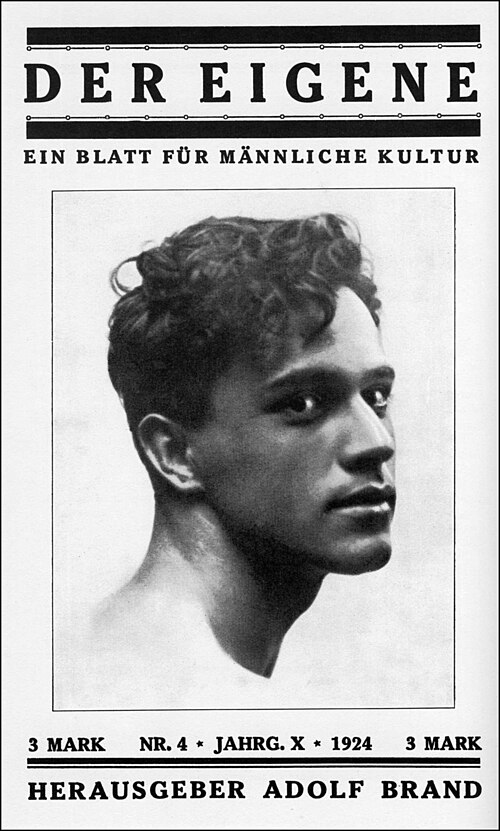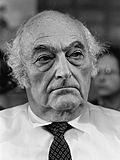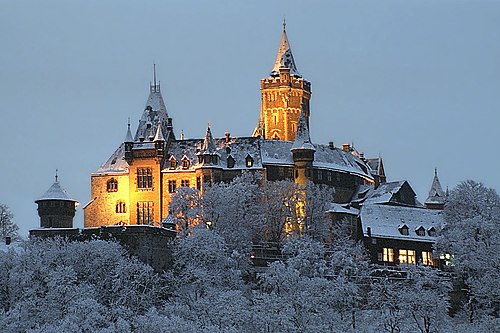Welcome to the Germany Portal!
Willkommen im Deutschland-Portal!

|

|

| |
Germany (German: Deutschland), officially the Federal Republic of Germany (German: Bundesrepublik Deutschland), is a country in Central and Western Europe, lying between the Baltic and North Sea to the north and the Alps to the south. It borders Denmark to the north, Poland and the Czech Republic to the east, Austria and Switzerland to the south, France to the southwest, and Luxembourg, Belgium and the Netherlands to the west.
Germany includes 16 constituent states, covers an area of 357,596 square kilometres (138,069 sq mi) and has a largely temperate seasonal climate. With nearly 83 million inhabitants, it is the second most populous state of Europe after Russia, the most populous state lying entirely in Europe, as well as the most populous member state of the European Union. Germany is a very decentralized country. Its capital and most populous city is Berlin, while Frankfurt serves as its financial capital and has the country's busiest airport.
In 1871, Germany became a nation-state when most of the German states unified into the Prussian-dominated German Empire. After World War I and the Revolution of 1918–19, the empire was replaced by the parliamentary Weimar Republic. The Nazi seizure of power in 1933 led to World War II, and the Holocaust. After the end of World War II in Europe and a period of Allied occupation, two new German states were founded: West Germany, formed from the American, British, and French occupation zones, and East Germany, formed from the western part of the Soviet occupation zone, reduced by the newly established Oder-Neisse line. Following the Revolutions of 1989 that ended communist rule in Central and Eastern Europe, the country was reunified on 3 October 1990.
Germany is a federal parliamentary republic led by a chancellor. It is a great power with a strong economy. As a global leader in several industrial, scientific and technological sectors, it is a major trading nation. The Federal Republic of Germany was a founding member of the European Economic Community in 1957 and the European Union in 1993. Read more...
Selected article

Francesca Gaetana Cosima Wagner (née Liszt; 24 December 1837 – 1 April 1930) was the daughter of the Hungarian composer and pianist Franz Liszt and Franco-German romantic author Marie d'Agoult. She became the second wife of the German composer Richard Wagner, and with him founded the Bayreuth Festival as a showcase for his stage works. After his death she devoted the rest of her life to the promotion of his music and philosophy. Commentators have recognised Cosima as the principal inspiration for Wagner's later works, particularly Parsifal.
In 1857, after a childhood largely spent under the care of her grandmother and with governesses, Cosima married the conductor Hans von Bülow. Although the marriage produced two children, it was largely a loveless union, and in 1863 Cosima began a relationship with Wagner, who was 24 years her senior. They married in 1870; after Wagner's death in 1883 she directed the Bayreuth Festival for more than 20 years, increasing its repertoire to form the Bayreuth canon of ten operas and establishing the festival as a major event in the world of musical theatre.
During her directorship, Cosima opposed theatrical innovations and adhered closely to Wagner's original productions of his works, an approach continued by her successors long after her retirement in 1907. She shared Wagner's convictions of German cultural and racial superiority, and under her influence, Bayreuth became increasingly identified with antisemitism. This was a defining aspect of Bayreuth for decades, into the Nazi era which closely followed her death there in 1930. Thus, although she is widely perceived as the saviour of the festival, her legacy remains controversial. (Full article...)
Selected picture
Related portals
- Parent portals
- Regional
- History
 Holy Roman Empire (900–1806)
Holy Roman Empire (900–1806) East Germany (1949–1990)
East Germany (1949–1990)
- Neighbouring countries
Anniversaries for June 8

- 1727 – Death of theologian August Hermann Francke, important figure of Pietism
- 1768 – Death of classical scholar Johann Joachim Winckelmann
- 1810 – Birth of composer Robert Schumann
- 1815 – The German Confederation is founded at the Congress of Vienna
- 1937 – Carl Orff's Carmina Burana premieres in Frankfurt
- 1980 – Death of singer and actor Ernst Busch
Did you know...
- ... that the German explorer Gustav Conrau (pictured) shot himself in 1899 to avoid recapture, according to a later report by his local interpreter?
- ... that novelist Barbara Frischmuth argues that humans should not presume to rule over other species?
- ... that a statue of German-born missionary Johann Gottlieb Schwarz was commissioned by Prabowo Subianto, later president of Indonesia?
- ... that the only surviving autograph pages of Bach's Ein feste Burg ist unser Gott, BWV 80, ended up in three libraries on two continents?
- ... that the birth of Christianity in Minahasa, Indonesia, is celebrated annually on June 12, the day that Johann Friedrich Riedel set foot in Manado?
- ... that Havergal Brian described his Second Symphony, inspired by Goethe's Götz von Berlichingen, as dealing with man "in his cosmic loneliness: ambition, loves, battles, death"?
- ... that Sofia Gubaidulina combined the Passion narrative according to John with texts from the Book of Revelation when she composed her 2000 Johannes-Passion?
- ... that Adolf Hitler received more than 300 visitors during his Festungshaft (fortress confinement) in Landsberg Prison?
Selected cuisines, dishes and foods

Topics
Categories
Things you can do

A list of articles needing cleanup associated with this project is available. See also the tool's wiki page and the index of WikiProjects.
Here are some tasks you can do. Please remove completed tasks from the list.
- Requests: German Archaeological Institute at Rome, Deutsche Familienversicherung, Dietlof von Arnim-Boitzenburg, Rolf von Bargen, Ernst Bassermann, Hennes Bender, Eduard Georg von Bethusy-Huc, Rolf Brandt (1886–1953), Jan Philipp Burgard, Rudolf Epp, Lisa Feller, Georg Arbogast von und zu Franckenstein, Georg Gafron, Ferdinand Heribert von Galen, Gundula Gause, Wolfgang von Geldern, Karl-Heinz Hagen, Herbert Helmrich, Nils von der Heyde, Ernst von Heydebrand und der Lasa, Monty Jacobs (1875–1945), Siegfried Kauder, Matze Knop, Wolfgang Kryszohn, Claus Larass, Isidor Levy (1852–1929), Markus Löning, Tobias Mann, Mathias Müller von Blumencron ,Günther Nonnenmacher, Günter von Nordenskjöld, Anke Plättner, Hans Heinrich X. Fürst von Pless, Günter Prinz, Ulrich Reitz, Hans Sauer (inventor), Franz August Schenk von Stauffenberg, Paul Schlesinger (1878-1928), Hajo Schumacher, Otto Theodor von Seydewitz, Christoph Sieber (comedian), Dorothea Siems, Werner Sonne, Udo zu Stolberg-Wernigerode, Christoph Strässer, Joseph von Utzschneider, Hedda von Wedel, Jürgen Wieshoff, Hans Wilhelmi, Dietmar Wischmeyer, Alexandra Würzbach
- Unreferenced: especially Unreferenced BLPs
- Cleanup: 53541 issues in total as of 2024-03-03
- Translate: Articles needing translation from German Wikipedia
- Stubs: the largest stub category is Category:German history stubs; see also 116 articles in Category:German MEP stubs
- Update: Deutsches Wörterbuch
- Portal maintenance: Update News, Did you know, announcements and the todo list
- Orphans:
Orphaned articles in Germany

- Photo: Take/Add requested photographs
- Help assess the quality of 910 unassessed articles
Associated Wikimedia
The following Wikimedia Foundation sister projects provide more on this subject:
-
Commons
Free media repository -
Wikibooks
Free textbooks and manuals -
Wikidata
Free knowledge base -
Wikinews
Free-content news -
Wikiquote
Collection of quotations -
Wikisource
Free-content library -
Wikiversity
Free learning tools -
Wikivoyage
Free travel guide -
Wiktionary
Dictionary and thesaurus




















































